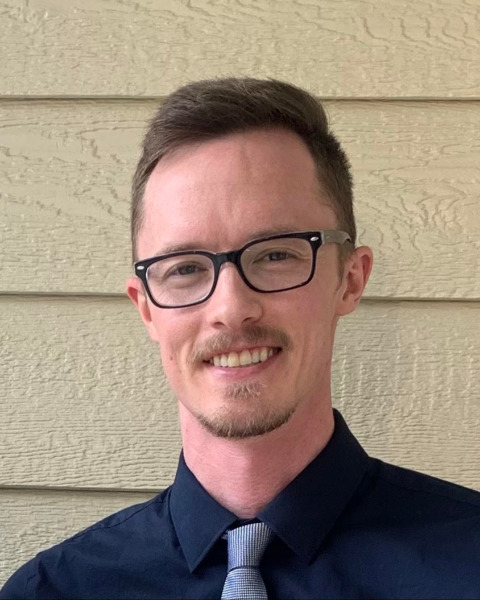Couples / Close Relationships
The effect of an online, guided self-help couple intervention on the well-being of intimate partners of people with PTSD: Couple HOPES
(PS10-A16) The Effect of an Online, Guided Self-help Couple Intervention on the Well-being of Intimate Partners of People with PTSD: Couple HOPES
- AC
Alexis Collins, B.S.
Research Assistant
Ryerson University
Ajax, Ontario, Canada 
Alexander O. Crenshaw, Ph.D.
Postdoctoral Fellow
Ryerson University
Toronto, Ontario, Canada- AW
Anne C. Wagner, Ph.D.
Adjunct Professor
Ryerson University
Toronto, Ontario, Canada - KW
Kristen M. Whitfield, PhD
Masters Student
Ryerson University
Toronto, Ontario, Canada - RV
Robert Valela, Other
Research Project Manager
Ryerson University
Edmonton, Alberta, Canada 
Sonya Varma, M.A.
Doctoral Student
York University
Toronto, Ontario, Canada- EE
Elizabeth A. Earle, PhD
Research Coordinator & Lab Manager, TULiP Lab
York University
Toronto, Ontario, Canada - AD
Alyssa A. Di Bartolomeo, PhD
Graduate Student
York University
Thornhill, Ontario, Canada - CM
Cait Martin Newnham, Other
Marketing Director
York University
Toronto, Ontario, Canada - JI
Jennifer Ip, M.A.
Graduate Student Researcher
Ryerson University
Toronto, Ontario, Canada 
Lindsay Fulham, M.A.
Graduate Student
York University
Toronto, Ontario, Canada- AS
Ashley N. Siegel, Other
Student
York University
Thornhill, Ontario, Canada - AX
Angela Xiang, PhD
Student
Ryerson University
Richmond Hill, Ontario, Canada - VD
Victoria L. Donkin, PhD
Research Assistant
Ryerson University
Toronto, Ontario, Canada - DM
Desiree Mensah, B.S.
Research Assistant
York University
Toronto, Ontario, Canada - JB
Julianne Bushe, None
Research Assistant
Ryerson University
Toronto, Ontario, Canada - ML
Meredith Landy, Ph.D., Psy.D.
Psychologist
Ryerson University
Toronto, Ontario, Canada - CS
Christina Samonas, PhD
Lab Manager and Research Assistant
Ryerson University
Toronto, Ontario, Canada 
Leslie Morland, Psy.D.
Professor of Psychiatry
VA San Diego Healthcare System/University of California, San Diego
La Jolla, California
Brian D. Doss, Ph.D.
Professor of Psychology
University of Miami
Miami, Florida
Skye Fitzpatrick, Ph.D.
Assistant Professor
York University
Toronto, Ontario, Canada- CM
Candice Monson, Ph.D.
Professor
Ryerson University
Toronto, Yukon, Canada
Author(s)
Co-Author(s)
Posttraumatic stress disorder (PTSD) is associated with high levels of caregiver burden, impaired psychological adjustment, and distress in intimate partners, particularly those of military member, veteran, and first responders (MMVFR; Lambert et al., 2012; Calhoun et al., 2002). However, this population has limited access to mental health programs due to high dropout rates, stigma, as well as financial, time, and geographical constraints (Bush et al., 2013; Taft et al., 2011). Although these barriers have long existed, the importance and urgency of having accessible programs was highlighted by the COVID-19 pandemic, which exacerbated caregiver stressors such as crisis and symptom management, social isolation, and adjustment to the course of the disorder (Bielgel et al., 1991). To remedy these issues, we adapted Cognitive-Behavioral Conjoint Therapy (CBCT; Monson & Fredman, 2012) into an online, guided, self-help program called Couple HOPES (Couples Overcoming PTSD and Enhance Satisfaction; Monson & Fredman, 2012). This program consists of seven interactive modules with psychoeducational videos, in-module practice assignments, out-of-module homework, and paraprofessional coaching. Preliminary evidence shows that Couple HOPES is effective at improving the person with PTSD’s symptoms, relationship conflict, and depression. However, the impact the program has on the intimate partner’s well-being remains unknown, limiting our understanding of the program's effectiveness and knowledge of how dyadic interventions can be used to leverage the well-being of both individuals in the couple. This study examined the efficacy of Couple HOPES in improving the well-being of MMVFR intimate partners using a combined sample of couples from a case series (N = 10) and uncontrolled trial (N = 17) wherein one member was MMVFR with probable PTSD.
Partners completed self-report measures of mental health and well-being at pre-, mid-, and post-intervention, as well as at 1-month follow-up. Of the 27 couples, 18 (67%) completed the program, with intimate partners reporting a mean satisfaction with the program of 3.7 (SD = 0.4) out of 4. An intent-to-intervene multilevel growth analysis revealed significant pre- to post-intervention medium effect improvements in ineffective arguing (g = .74), perceived health (g = 0.67) and quality of life (g = .56), and a small effect improvement in anger (g = .32). There were non-significant changes in generalized anxiety, alcohol problems, work functioning, and depression. Most results stayed consistent over the 1-month follow-up, with the exception of generalized anxiety (g = .43) and perceived health (g = .80), which significantly improved, and anger, which significantly worsened (g = -.48). These results suggest that Couple HOPES holds promise as an alternative to in-person psychotherapies to improve the well-being of partners of people with PTSD.

